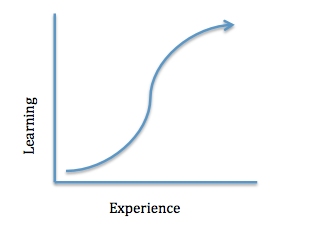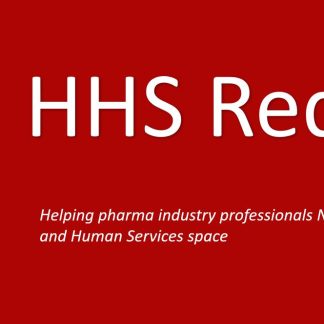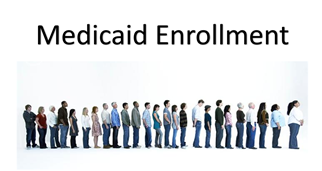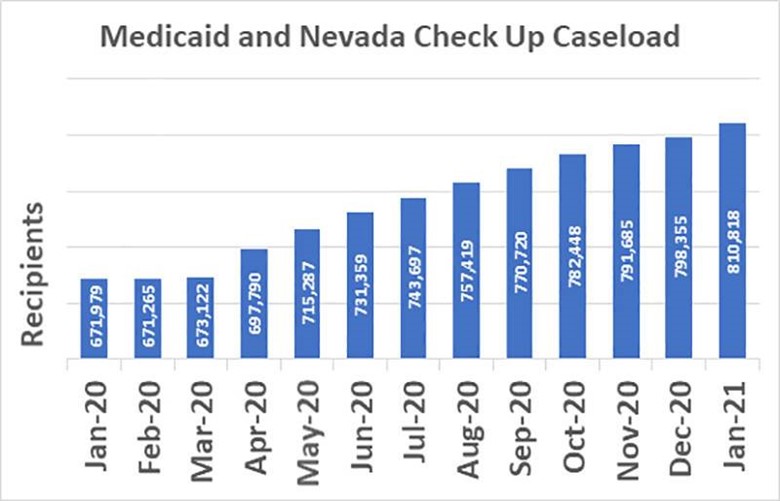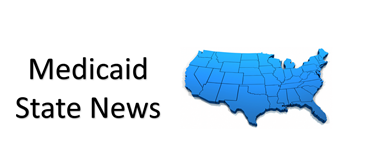Department of Health And Human Services
Center for Program Integrity (CPI)
Summary
This position is located in the Department of Health & Human Services (HHS), Centers for Medicare & Medicaid Services (CMS), Center for Program Integrity (CPI), Division of Program Integrity Support Contracts.
As a Health Insurance Specialist (Program Contractor Management), GS-0107-11/12, you will use program knowledge to effectively plan, identify, and design contract requirements during the planning and awarding phase of acquisition(s).
Learn more about this agency
Responsibilities
- Provide analytical support on policy issues and topics, research background information, the origin of laws, and the intended impact in order.
- Use program knowledge to effectively plan, identify, and design contract requirements during the planning and awarding phase of acquisition(s).
- Document performance with special emphasis on significant trends and items of interest in the management of contractor actions.
- Manage, monitor, and oversee contractor transition activities.
- Develop, implement, and maintain operational requirements, including standard operating procedures, as well as databases, to manage and analyze programmatic information such as routine and ad hoc report, deliverables, and programmatic documentation.
Travel Required
Occasional travel – 5% or less
Supervisory status
No
Promotion Potential
12
Requirements
Conditions of Employment
- You must be a U.S. Citizen or National to apply for this position.
- You will be subject to a background and suitability investigation.
- Time-in-Grade restrictions apply.
Qualifications
ALL QUALIFICATION REQUIREMENTS MUST BE MET WITHIN 30 DAYS OF THE CLOSING DATE OF THIS ANNOUNCEMENT.
Your resume must include detailed information as it relates to the responsibilities and specialized experience for this position. Evidence of copying and pasting directly from the vacancy announcement without clearly documenting supplemental information to describe your experience will result in an ineligible rating. This will prevent you from receiving further consideration.
In order to qualify for the GS-12, you must meet the following: You must demonstrate in your resume at least one year (52 weeks) of qualifying specialized experience equivalent to the GS-11 grade level in the Federal government, obtained in either the private or public sector, to include: (1) Monitoring contractors that support in national health care delivery, quality, or payment programs and/or maintain health care program-related databases; (2) Conducting analytical studies by interpreting health care program issues related to contract administration functions; and (3) Coordinating responses to government inquiries regarding health care program issues requiring corrective action plans.
In order to qualify for the GS-11, you must meet the following: You must demonstrate in your resume at least one year (52 weeks) of qualifying specialized experience equivalent to the GS-09 grade level in the Federal government, obtained in either the private or public sector, to include: A. (1) Assisting in monitoring contractors that participate in national healthcare delivery programs and/or maintain program-related databases; (2) Participating as a team member in analytical studies by gathering, organizing, and interpreting policy, program, and/or operational issues related to contract administration functions; and (3) Developing responses to inquiries regarding healthcare program integrity issues.
– OR – B. Substitution of Education for Experience: possess a Ph.D. or equivalent doctoral degree or have completed three full years of progressively higher level graduate education leading to such a degree or I possess a LL.M in a related field of study, from an accredited college and/or university. One year of full-time graduate education is considered to be the number of credit hours that the school attended has determined to represent one year of full-time study. If that information cannot be obtained from the school, 18 semester hours will satisfying the one year of full-time study requirement. (TRANSCRIPT REQUIRED AT TIME OF APPLICATION)
– OR – C. Combination of Experience and Education: combination of specialized experience as described in “A” above and graduate education as described in “B” above. To combine education and experience, determine the total qualifying experience as a percentage of the experience required for the grade level. Then determine the education as a percentage of the education required for the grade level. Finally, add two percentages. The total percentage must equal at least 100 percent.
TRANSCRIPTS are required to verify satisfactory completion of the educational requirement related to substitution of education for experience and combination of experience and education. Please see “Required Documents” section below for what documentation is required at the time of application.
Experience refers to paid and unpaid experience, including volunteer work done through National Service programs (e.g., Peace Corps, AmeriCorps) and other organizations (e.g., professional; philanthropic; religious; spiritual; community, student, social). Volunteer work helps build critical competencies, knowledge, and skills and can provide valuable training and experience that translates directly to paid employment. You will receive credit for all qualifying experience, including volunteer experience.
Time-in-Grade: To be eligible, current or former Federal employees and current or former Federal employees applying under the VEOA eligibility who hold or have held a permanent General Schedule position in the previous year must have served at least 52 weeks (one year) at the next lower grade level from the position/grade level(s) to which they are applying.
Click the following link to view the occupational questionnaire: https://apply.usastaffing.gov/ViewQuestionnaire/11032441
Education
This job does not have an education qualification requirement.
Additional information
Bargaining Unit Position: Yes
Tour of Duty: Flexible
Recruitment/Relocation Incentive: Not Authorized
Financial Disclosure: Not Required
Full-Time Telework Program for CMS Employees: CMS employees currently participating in 100% Full-Time Telework Program may be eligible to remain in the program. If an employee in this program is selected, the pay will be set in accordance with the locality pay for the applicable duty station. The listed salary range reflects the locality pay assigned to the duty location(s) listed in the vacancy announcement. For more information about pay based on locality, please visit the Office of Personnel Management (OPM) Salaries & Wages Page.
Additional Forms REQUIRED Prior to Appointment:
- Optional Form 306, Declaration of Federal Employment and the Background/Suitability Investigation – A background and suitability investigation will be required for all selectees. Appointment will be subject to the successful completion of the investigation and favorable adjudication. Failure to successfully meet these requirements may be grounds for appropriate personnel action. In addition, if hired, a reinvestigation or supplemental investigation may be required at a later time. If selected, the Optional Form 306 will be required prior to final job offer. Click here to obtain a copy of the Optional Form 306.
- Form I-9, Employment Verification and the Electronic Eligibility Verification Program – CMS participates in the Electronic Employment Eligibility Verification Program (E-Verify). E-Verify helps employers determine employment eligibility of new hires and the validity of their Social Security numbers. If selected, the Form I-9 will be required at the time of in-processing. Click here for more information about E-Verify and to obtain a copy of the Form I-9.
- Standard Form 61, Appointment Affidavits – If selected, the Standard Form 61 will be required at the time of in-processing. Click here to obtain a copy of the Standard Form 61.
The Interagency Career Transition Assistance Plan (ICTAP) and Career Transition Assistance Plan (CTAP) provide eligible displaced federal employees with selection priority over other candidates for competitive service vacancies. To be qualified you must submit the required documentation and be rated well-qualified for this vacancy. Click here for a detailed description of the required supporting documents. A well-qualified applicant is one whose knowledge, skills and abilities clearly exceed the minimum qualification requirements of the position. Additional information about ICTAP and CTAP eligibility is on OPM’s Career Transition Resources website at www.opm.gov/rif/employee_guides/career_transition.asp.
If you are unable to apply online or need to fax a document you do not have in electronic form, view the following link for information regarding an Alternate Application.
Read more
How You Will Be Evaluated
You will be evaluated for this job based on how well you meet the qualifications above.
Additional selections may be made for similar positions across the Department of Health and Human Services (HHS) within the local commuting area(s) of the location identified in this announcement. By applying, you agree to have your application shared with any interested selecting official(s) at HHS. Clearance of CTAP/ICTAP will be applied for similar positions across HHS.
Once the announcement has closed, your online application, resume, transcripts and CMS required documents will be used to determine if you meet eligibility and qualification requirements listed on this announcement. If you are found to be among the top qualified candidates, you will be referred to the selecting official for employment consideration. Please follow all instructions carefully. Errors or omissions may affect your rating.
Your qualifications will be evaluated on the following competencies (knowledge, skills, abilities and other characteristics):
- Contracting/Procurement
- Health Insurance
- Oral Communication
- Written Communication
Read more
Background checks and security clearance
Security clearance
Not Required
Drug test required
No
Position sensitivity and risk
Non-sensitive (NS)/Low Risk
Trust determination process
Credentialing, Suitability/Fitness
Required Documents
The following documents are REQUIRED:
1. Resume
showing relevant experience; cover letter optional. Your resume must indicate your citizenship and if you are registered for Selective Service if you are a male born after 12/31/59. Your resume must also list your work experience and education (if applicable) including the start and end dates (mm/dd/yy) of each employment along with the number of hours worked per week. For work in the Federal service, you must include the series and grade level for the position(s). Your resume will be used to validate your responses to the assessment tool(s). For resume and application tips visit: https://www.usajobs.gov/Help/faq/application/documents/resume/what-to-include/
2. CMS Required Documents (e.g., SF-50, DD-214, SF-15, etc.). Required documents may be necessary to be considered for this vacancy announcement. Click here for a detailed description of the required documents. Failure to provide the required documentation WILL result in an ineligible rating OR non-consideration.
PLEASE NOTE: A complete application package includes the online application, resume, transcripts and CMS required documents. Please carefully review the full job announcement to include the “Required Documents” and “How to Apply” sections. Failure to submit the online application, resume, transcripts and CMS required documents, will result in you not being considered for employment.
Benefits
A career with the U.S. Government provides employees with a comprehensive benefits package. As a federal employee, you and your family will have access to a range of benefits that are designed to make your federal career very rewarding. Learn more about federal benefits.
Review our benefits
Eligibility for benefits depends on the type of position you hold and whether your position is full-time, part-time, or intermittent. Contact the hiring agency for more information on the specific benefits offered.
How to Apply
Your complete application package, as described in the “Required Documents” section, must be received by 11:59 PM ET on 02/25/2021 to receive consideration.
IN DESCRIBING YOUR WORK EXPERIENCE AND/OR EDUCATION, PLEASE BE CLEAR AND SPECIFIC REGARDING YOUR EXPERIENCE OR EDUCATION.
We strongly encourage applicants to utilize the USAJOBS resume builder in the creation of resumes. Please ensure EACH work history includes ALL of the following information:
- Official Position Title (include series and grade if Federal job)
- Duties (be specific in describing your duties)
- Employer’s name and address
- Supervisor name and phone number
- Start and end dates including month, day and year (e.g. June 18, 2007 to April 05, 2008)
- Full-time or part-time status (include hours worked per week)
- Salary
Determining length of general or specialized experience is dependent on the above information and failure to provide ALL of this information WILL result in a finding of ineligible.
- To begin, click Apply to access the online application. You will need to be logged into your USAJOBS account to apply. If you do not have a USAJOBS account, you will need to create one before beginning the application.
- Follow the prompts to select your resume and/or other supporting documents to be included with your application package. You will have the opportunity to upload additional documents to include in your application before it is submitted. Your uploaded documents may take several hours to clear the virus scan process.
- After acknowledging you have reviewed your application package, complete the Include Personal Information section as you deem appropriate and click to continue with the application process.
- You will be taken to the online application which you must complete in order to apply for the position. Complete the online application, verify the required documentation is included with your application package, and submit the application.
To verify the status of your application, log into your USAJOBS account (https://my.usajobs.gov/Account/Login), all of your applications will appear on the Welcome screen. The Application Status will appear along with the date your application was last updated. For information on what each Application Status means, visit: https://www.usajobs.gov/Help/how-to/application/status/.
This agency provides reasonable accommodation to applicants with disabilities. If you need a reasonable accommodation for any part of the application or hiring process, please send an email to McQuail.Price@cms.hhs.gov. The decision to grant reasonable accommodation will be made on a case-by-case basis.
Commissioned Corps Officers (including Commissioned Corps applicants that are professionally boarded) who are interested in applying for this position must send their professional resume (not PHS Curriculum Vitae) and cover letter to CMSCorpsJobs@cms.hhs.gov in lieu of applying through this announcement. The cover letter should specifically explain how you are qualified for this position and draw specific attention to your resume that demonstrates these qualifications. In the subject line of your e-mail please include only the Job Announcement Number. In the body of your e-mail please include your current rank name and serial number. Failure to provide this information may impact your consideration for this position.
Read more
Agency contact information
McQuail Price
Email
McQuail.Price@cms.hhs.gov
Address
Center for Program Integrity
7500 Security Blvd
Woodlawn, MD 21244
US
Learn more about this agency
Next steps
Once your online application is submitted, you will receive a confirmation notification by email. Your application will be evaluated to determine your eligibility and qualifications for the position. After the evaluation is complete, you will receive another email notification regarding the status of your application.
Within 30 business days of the closing date,02/25/2021, you may check your status online by logging into your USAJOBS account (https://my.usajobs.gov/Account/Login). We will update your status after each key stage in the application process has been completed.
Read more
The Federal hiring process is setup to be fair and transparent. Please read the following guidance.
Equal Employment Opportunity Policy
The United States Government does not discriminate in employment on the basis of race, color, religion, sex (including pregnancy and gender identity), national origin, political affiliation, sexual orientation, marital status, disability, genetic information, age, membership in an employee organization, retaliation, parental status, military service, or other non-merit factor.
Read more
Reasonable Accommodation Policy
Federal agencies must provide reasonable accommodation to applicants with disabilities where appropriate. Applicants requiring reasonable accommodation for any part of the application process should follow the instructions in the job opportunity announcement. For any part of the remaining hiring process, applicants should contact the hiring agency directly. Determinations on requests for reasonable accommodation will be made on a case-by-case basis.
A reasonable accommodation is any change to a job, the work environment, or the way things are usually done that enables an individual with a disability to apply for a job, perform job duties or receive equal access to job benefits.
Under the Rehabilitation Act of 1973, federal agencies must provide reasonable accommodations when:
- An applicant with a disability needs an accommodation to have an equal opportunity to apply for a job.
- An employee with a disability needs an accommodation to perform the essential job duties or to gain access to the workplace.
- An employee with a disability needs an accommodation to receive equal access to benefits, such as details, training, and office-sponsored events.
You can request a reasonable accommodation at any time during the application or hiring process or while on the job. Requests are considered on a case-by-case basis.
Learn more about disability employment and reasonable accommodations or how to contact an agency.
Read more
Clipped from: https://www.usajobs.gov/GetJob/ViewDetails/592126600

